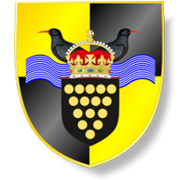Licensing
Requirements
The owners of maritime craft must make sure they satisfy three basic requirements.
1) The equipment being fitted or used must be “Type Approved”.
2) The equipment must be licenced. Licensing is free online at the Ofcom website.
3) The operator must be qualified or be under the direct supervision of someone who holds an operators certificate.
Type Approval
 Marine radio equipment on sale in the UK must conform to the technical requirements of the European Radio and Telecommunication Terminal Equipment Directive (R&TTE) and should carry an identification mark similar to the one shown here.
Marine radio equipment on sale in the UK must conform to the technical requirements of the European Radio and Telecommunication Terminal Equipment Directive (R&TTE) and should carry an identification mark similar to the one shown here.
The Ofcom website has all the regulation on radio equipment so if you are unsure of the equipment you have or secondhand equipment that you might like to purchase go to http://www.ofcom.org.uk or phone 0845 456300. The RYA (Royal Yachting Association) and the MCA (Maritime & Coastguard Agency) are always willing to assist with questions and procedures and may be contacted via http://www.rya.org.uk or the MCA on 023 8032 9100.
The Ship Radio Licence
The Wireless and Telegraphy Act of 1949 requires that a vessels fitted with radio equipment have a valid Ship Radio Licence. This licence is valid for the entire life of the vessel but owner are required to renew the licence every ten (10) years or if equipment is changed. licensing is free if you do it online at the Ofcom website.
It is important that the licence is carried on board the vessel, if your are boarded by the MCA etc you will be required to show the licence for the radio equipment installed.
The Licence covers all equipment that can transmit if you have declared it when applying for the licence.
a) MF, HF, VHF
b) Digital Selective Calling (DSC) Equipment associated with the GMDSS
c) Hand held marina radios used on the parent craft or tender
d) Radar and Search and Rescue Transponders (SARTs)
e) Emergency Positioning Radio Beacons (EPIRBs)
f) Satellite communications equipment (Ship Earth Stations)
g) Low power on board communications including UHF and repeater stations.
h) A.I.S
On original application for a Licence boats will be issued with a unique international call sign which remains with the vessel through both change of ownership and equipment. A typical Call sign would be MZD8T. DSC equipment will be issued with a additional nine figure MMSI (Maritine Mobile Service Identity).
Ships Portable Licence
A handheld VHF radio which is intended to be used in a variety of craft is required to have a “Ships Portable Licence” which is free if you apply on line. This set will be issued with a International call sign which includes the letter “T” to donate that it is “transportable and licensed to an individual and not a boat.
Operator Qualifications
To maintain operational standards and to ensure a working knowledge of distress, emergency and safety procedures a maritime radio can only be operated by a holder of the appropriate operators certificate or by someone under their direct supervision.
SRC’s or Short Range Certificate for VHF Radio are available through training centres such as Seafood Cornwall Training Ltd Based in Newlyn or the Royal Yachting Association. Training courses are a one day event that comprise of hands on tuition and a final assessment to gain your SRC.
